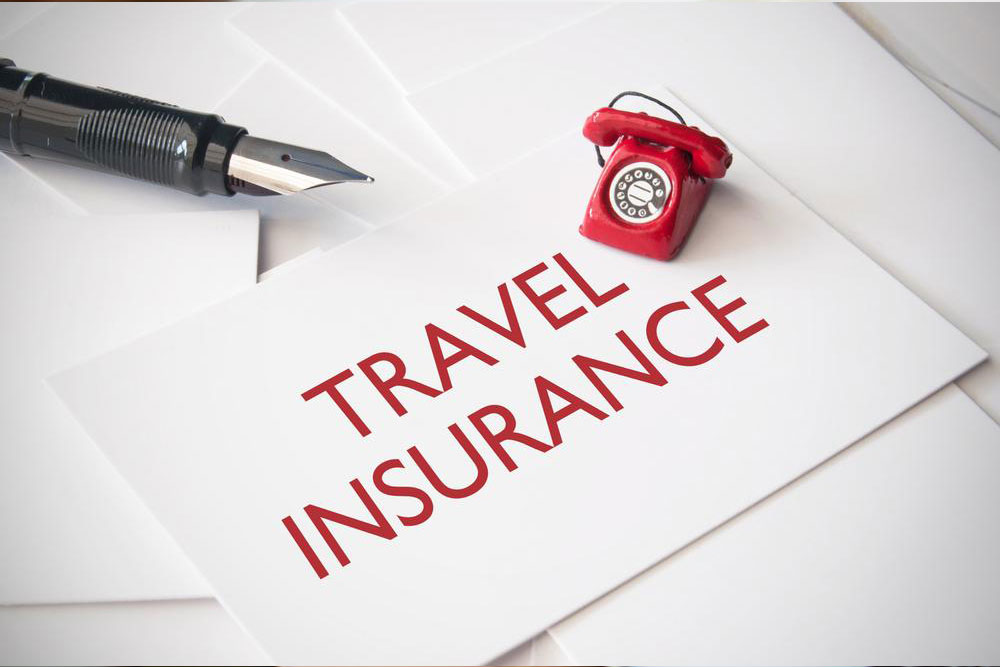Comprehensive Guide to Travel Insurance Exclusions You Must Know Before Your Trip
This comprehensive guide details essential travel insurance exclusions travelers should know. It covers common limitations like weather-related damages, medical coverage restrictions, high-risk activity exclusions, and booking-related limitations, enabling travelers to choose the right policy and avoid unexpected costs. Proper understanding of these exclusions ensures better protection and peace of mind during trips, especially when traveling to high-risk areas or engaging in adventurous activities. Equip yourself with this knowledge before your next journey for a smooth and worry-free travel experience.

Common Exclusions in Travel Insurance Policies You Should Be Aware Of
Travel insurance is an essential component of any trip, providing peace of mind by covering unexpected events and emergencies. However, many travelers often overlook the detailed limitations and exclusions included in their policies, which can lead to costly surprises during their travels. Understanding what is excluded from coverage, especially in budget-friendly plans, is crucial for making informed decisions and ensuring adequate protection.
When selecting a travel insurance plan, especially an affordable one, it's vital to carefully review the policy's terms and conditions. Many inexpensive plans tend to omit certain types of coverage to keep premiums low. This makes it imperative for travelers to compare different providers and policies to find one that aligns well with their specific travel needs and risk profile.
Weather-Related Incidents and Natural Disasters
One of the most common exclusions in travel insurance is coverage for damages caused by severe weather events. Such events include hurricanes, storms, floods, earthquakes, and other natural catastrophes. Insurance providers often do not cover damages resulting from these phenomena because they are considered acts of nature outside their control. Additionally, incidents stemming from terrorist activities, political unrest, or natural disasters are typically outside the scope of standard policies.
Travelers should clarify these exclusions prior to purchasing insurance, especially when traveling to regions prone to such events. If you're planning a trip to areas with high natural disaster risk, consider purchasing specialized coverage or additional riders that include protection against these types of incidents.
Medical Coverage Limitations
Medical emergencies are a significant concern while traveling, and insurance coverage can vary widely. While some budget plans offer basic health coverage, they often exclude complex or high-cost conditions. For instance, issues such as pregnancy-related complications, mental health crises, emergency surgeries, or even fatalities are frequently not covered under inexpensive policies. Dental treatments or routine check-ups may also be excluded, leading to unexpected out-of-pocket costs.
Travelers should carefully review the medical coverage limits of their policies and consider purchasing additional coverage if they anticipate potential health issues during their trip. Furthermore, understanding the process for claiming and the documentation required can save time and prevent claim denials later.
Coverage for Flights, Accommodation, and Prepaid Bookings
Many travelers now book flights and hotels through various platforms that may have specific insurance arrangements or partnership programs. However, insurance policies often have fine print regarding coverage of such bookings. For example, if reservations or payments were made outside of standard protocols, or without utilizing eligible discounts or promotions, the insurance might not fully reimburse canceled or disrupted plans.
It's essential to verify coverages related to cancellations, delays, or interruptions involving flights, hotels, or other prepaid arrangements. Travelers should also check whether their insurance covers bookings made with airline miles, loyalty points, or special promotional discounts, as these often fall outside standard coverage terms.
Coverage for High-Risk Activities
Another critical exclusion involves activities classified as high-risk or adventure sports. Typical travel insurance policies do not automatically include coverage for activities such as scuba diving, skiing, snowboarding, skydiving, mountain climbing, or other adrenaline-pumping sports. Engaging in these activities without explicit coverage can lead to denial of claims related to injuries or damages sustained during such pursuits.
If you plan to participate in adventurous or physically demanding sports, it is highly advisable to purchase a specialized policy or add an endorsement that covers injuries, accidents, or damages incurred during these activities. This proactive step can prevent costly out-of-pocket expenses and ensure that you're protected during your active pursuits.
Important Tips for Claim Filing and Documentation
Filing a claim successfully requires meticulous documentation and timely communication with your insurance provider. Incomplete or disorganized paperwork may result in claim denial or delay in reimbursement. When incidents occur, ensure you gather all relevant documents, such as police reports, medical records, receipts, photographs, and any correspondence related to the claim.
Maintaining a well-organized record of all travel-related documents can streamline the claims process. Always read your policy thoroughly to understand the procedures for submitting claims, the required evidence, and the time frames involved. Being prepared can make the difference between receiving full coverage and losing benefits altogether.
In summary, understanding the common exclusions in travel insurance policies is essential for every traveler. By being aware of what is not covered — from weather-related damages and medical issues to high-risk activities and booking cancellations — you can select the most appropriate plan and avoid unexpected expenses. Take the time to compare options, clarify your coverage needs, and prepare your documentation, ensuring a smooth and worry-free travel experience.





